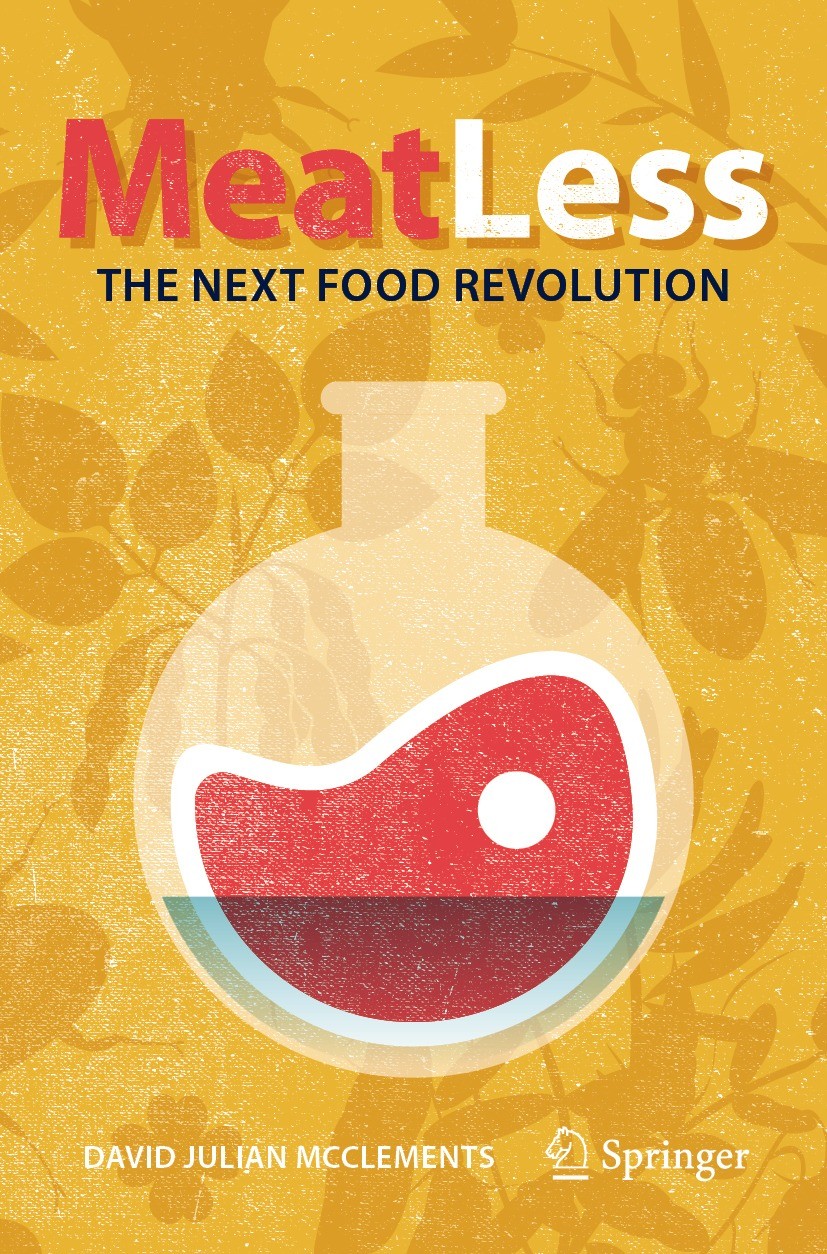| 书目名称 | Meat Less: The Next Food Revolution | | 编辑 | David Julian McClements | | 视频video | http://file.papertrans.cn/629/628259/628259.mp4 | | 概述 | Examines the impact of meat consumption on the environment.Covers new technologies that are being developed to create alternatives to meat.Explores plant-based meats, cultured (lab-grown) meats, micro | | 丛书名称 | Copernicus Books | | 图书封面 |  | | 描述 | .Reducing the amount of meat in our diet would have major environmental benefits, including reducing greenhouse gas emissions, pollution, deforestation, and biodiversity loss. Moreover, it would have wide-ranging ethical benefits by decreasing the huge number of livestock animals confined and killed each year for food. For consumers, there may also be health benefits from a meat-less diet, provided it was carefully planned. Advances in modern science and technology, including plant-based, microbial, lab-grown, and insect meats, are revolutionizing the food industry and making it easier for consumers worldwide to maintain a meat-less diet..In .Meat Less: The Next Food Revolution .I outline my own journey as a food scientist who became a vegetarian in solidarity with my daughter. In writing this book I take the viewpoint that there are no easy answers and that everyone must make the decision to eat meat or not based on their own values. The first chapters examine the impact of meat consumption on the environment, human health, and animal welfare, including the important questions of how much does eating meat really contribute to greenhouse gas emissions, pollution, and biodiversity | | 出版日期 | Book 2023 | | 关键词 | Plant-based foods; Meat analogs; Global warming; Animal welfare; Precision fermentation; Insect Foods | | 版次 | 1 | | doi | https://doi.org/10.1007/978-3-031-23961-8 | | isbn_softcover | 978-3-031-23963-2 | | isbn_ebook | 978-3-031-23961-8Series ISSN 2731-8982 Series E-ISSN 2731-8990 | | issn_series | 2731-8982 | | copyright | The Editor(s) (if applicable) and The Author(s), under exclusive license to Springer Nature Switzerl |
The information of publication is updating

|
|
 |Archiver|手机版|小黑屋|
派博传思国际
( 京公网安备110108008328)
GMT+8, 2026-2-8 17:37
|Archiver|手机版|小黑屋|
派博传思国际
( 京公网安备110108008328)
GMT+8, 2026-2-8 17:37


